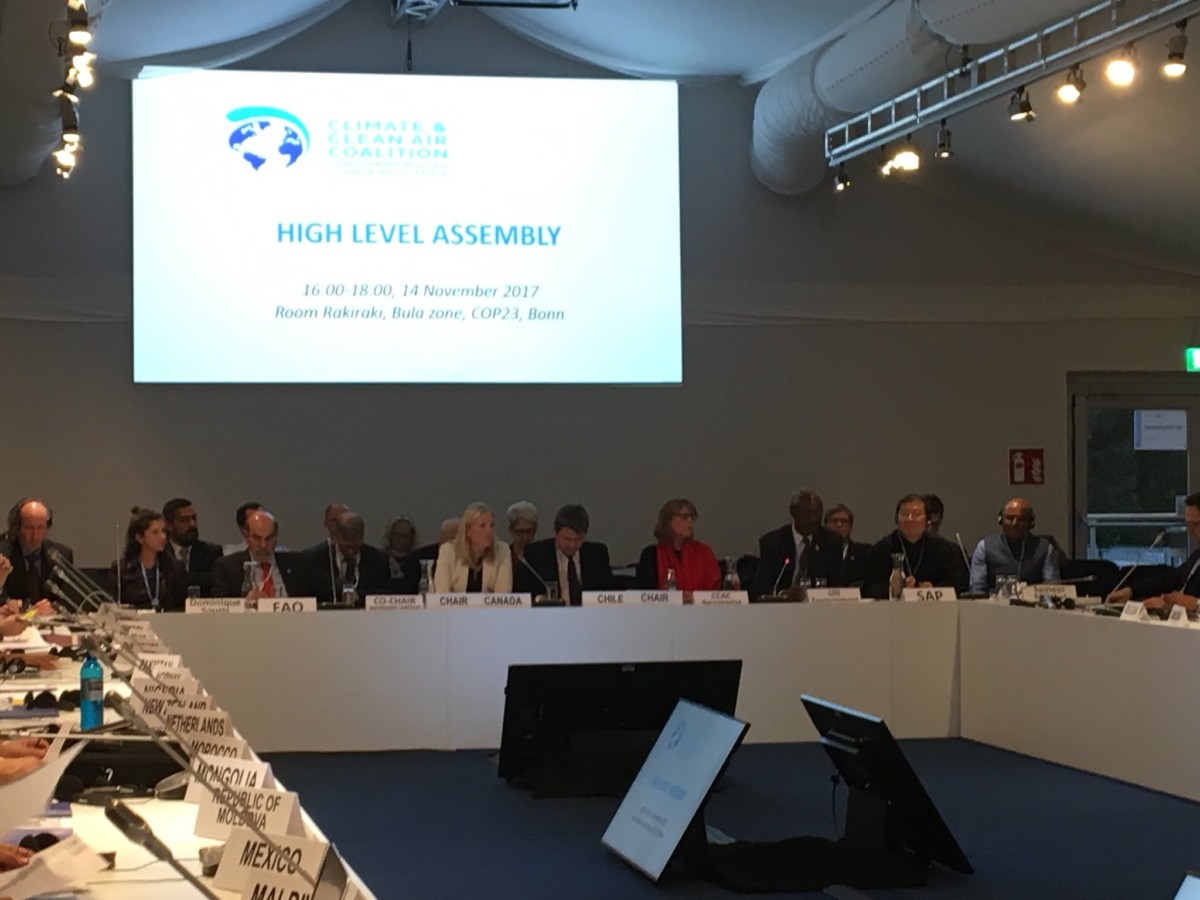CCAC Urges Ratification of Kigali Amendment, Welcomes Complementary Efforts to Increase Energy Efficiency

Bonn, Germany, 14 November 2017- Continuing their leadership on short-lived climate pollutants (SLCPs), the Bonn Communique of the Climate & Clean Air Coalition (CCAC) released today stated:
“We commend the countries that included short-lived climate pollutants in their national climate action plans, and the twelve countries that have ratified the Kigali Amendment to phase-down HFCs, and we encourage all countries and partners to continue efforts to reduce these pollutants and welcome complementary efforts to support increased energy efficiency in cooling appliances”
The Bonn Communique was adopted by the ministers at a meeting of CCAC’s High Level Assembly (HLA) hosted at the 23rd annual Conference of the Parties to the United Nations Framework Convention on Climate Change, COP23.
"The Ministers of the Coalition were at the forefront to encourage the world to ratify the Kigali Amendment, which is the most important mitigation treaty with universal membership we have today. Its implementation will avoid 0.5°C of global warming,” said Romina Picolotti, Senior Counsel of the Institute for Governance & Sustainable Development, who was at the meeting. “Now we are working hard with these courageous Ministers to double the development and climate benefits by ensuring that energy efficiency is increased while phasing down this super greenhouse gas. Climate change is an existential threat and it is our responsibility to focus our efforts to deliver fast mitigation at scale now. This is exactly what the Kigali Amendment will do," she added.
The Kigali Amendment to the Montreal Protocol was adopted on the 15th of October 2016 to phase down HFCs, one of the super greenhouse gases. The amendment will enter into force on 1 January 2019, provided at least 20 instruments of ratification, acceptance, or approval have been deposited by Parties to the Montreal Protocol.
The first 14 countries have already ratified*, and it is still possible for six more parties to announced their ratification during this year’s 30th anniversary Meeting of the Parties of the Montreal Protocol November 20-24th.
“During its 30-year history, the Montreal Protocol has solved the first great threat to the global atmosphere by putting the stratospheric ozone layer back on the path to recovery, while also avoiding an amount of warming that otherwise could have equaled that from carbon dioxide, which is responsible for more than half of all warming,” said Durwood Zaelke, President of the Institute for Governance & Sustainable Development. “The Kigali Amendment will avoid another significant amount of warming.”
The Kigali Amendment provides the largest, fastest, and most secure climate mitigation available in the near-term, avoiding up to 0.5°C of warming by the end of the century. The HFC phasedown also will catalyze improvement of the energy efficiency of air conditioners, refrigerators, and other products and equipment that use HFCs as refrigerants. This will avoid significant amounts of CO2 emissions from the power plants that provide the electricity to run these products and equipment, equal to the production from between nearly 1,600 medium-sized (500 MW) peak-load power plants by 2030, and up to 2,500 power plants by 2050.
Improving energy efficiency in air conditioners and other appliances during the phasedown of HFCs, can nearly double the climate benefits of the HFC phasedown.
[*As of November 20th, there are now 21 ratifications officially on file with the UN depository.]IGSD’s HFC Primer is here.